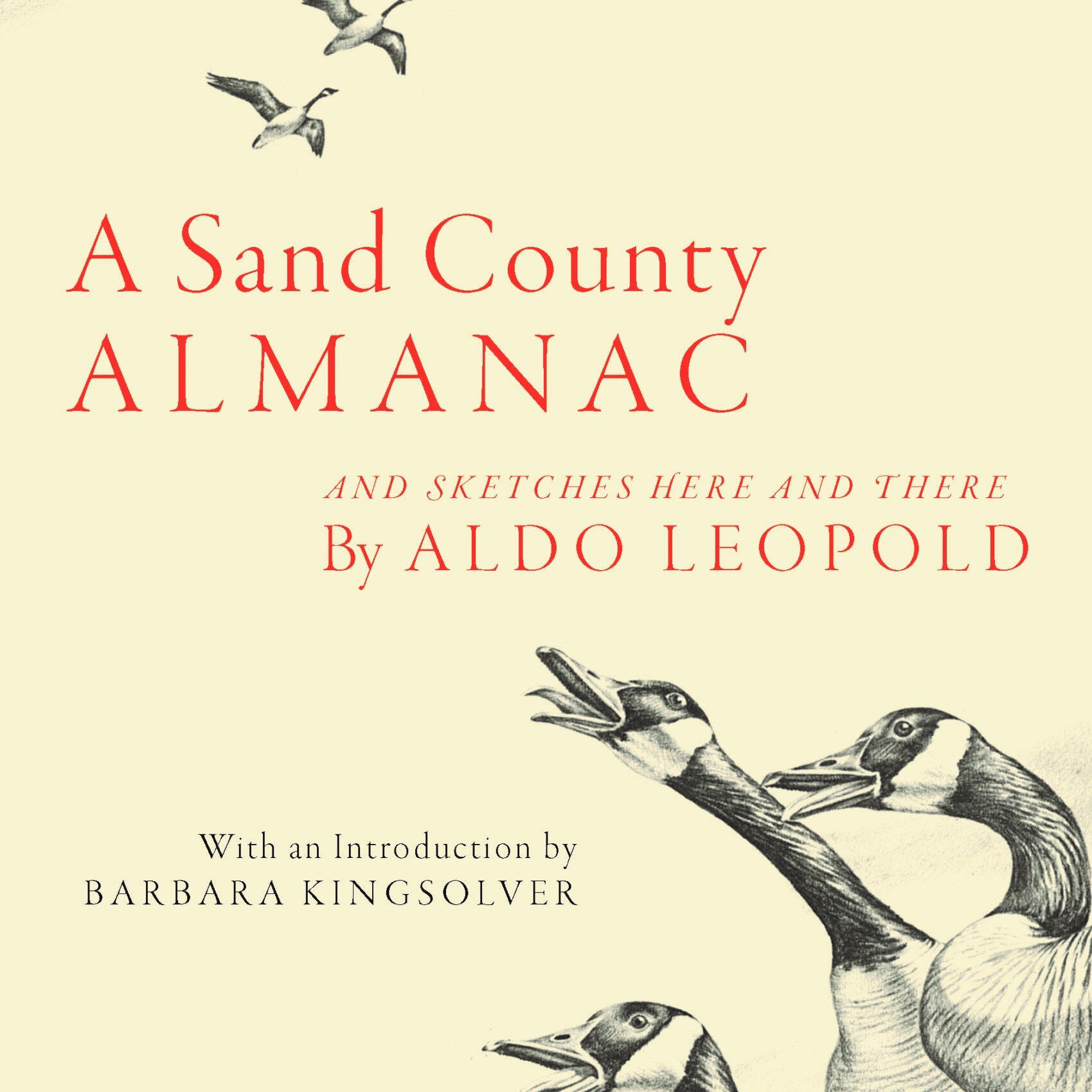What We’re Reading - A Sand County Almanac
Photo courtesy of aldoleopold.org.
“A thing is right when it tends to preserve the integrity, stability, and beauty of the biotic community. It is wrong when it tends otherwise.” -Aldo Leopold’s Land Ethic
Aldo Leopold’s A Sand County Almanac is a series of essays focusing on ecological ethics. The early essays begin as an almanac of observations from each month on his farm in Sand County, WI, where he grounds the reader to the goings-on of the ordinary animals and plants. The trundling of a recently awakened skunk in January or the fleeting beauty of Eleocharis blooming along a stream in August are both examples of Leopold’s observations from his farm. His informal prose interspersed with philosophic musings open the reader’s eyes to new perspectives and drive home the importance of caring for the land.
As the book progresses, Leopold broadens the scope and begins discussing ecological ethics and how progress has too often come at the cost of serious harm to our home and environmental community. And as Leopold pens, “… we are not sure, in our hearts, that we have gained by the exchange.” I often find myself torn between the comforts provided by modern technology and the desire for a sustainable and thriving environment.
“The gadgets of industry bring us more comforts than the pigeons did, but do they add as much to the glory of the spring?” -Aldo Leopold
As I sit in my sturdy chair built thousands of miles away, warmed by hot air that I did nothing to produce, I read A Sand County Almanac with an assortment of emotion. Peering closer into my metaphorical stew of sentiments, I find that Guilt has swiftly bubbled to the top. I consider how my choices too often misalign with Leopold’s land ethic. Could I have built a chair instead of purchasing one? The wood and supplies most likely would have cost more once it was constructed, and it certainly would have been less comfortable. Conversely, it would have been better for the environment to build it myself rather than pay for unknown wood from far away places. And shifting in the seat of my purchased chair, I question whether I might have found an additional comfort stemming from the pride of crafting, however poorly, something with my own hands.
As I continue on the survey of my thoughts, I push underneath the coating of Guilt to discover hearty chunks of Nostalgia bobbing in the medley. I reminisce on my childhood in the woods of northern Wisconsin: splitting wood with my father to provide heat for our home, dozing in the ramshackle hammock joining two healthy oaks next to our house, and picking burdock seeds from my dog’s fur. The smell of smoke drifting from our wood stove mingling with the autumn leaves is a smell that will forever be burned into my memory.
Complementing the chunks of Nostalgia, I notice there are pieces of Sorrow rising in the stew. Leopold writes about the loss of the sole remaining compass plant growing in a cemetery near his farm after the road crew decided to remove the fence protecting it. He reflects on what the thousand acres of Silphium on this land would have looked like as the buffalo walked through the fields. His musings on the loss of such things makes me wonder what sights and experiences I will never have due to the cost of human progress. What about my daughter?
Finally, as I near the bottom of the stew, I become aware that surrounding and underlying each of the prior ingredients is Yearning. As Leopold writes, “those luckless ones who have never stood… mouth agape… to watch the golden [tamarack] needles come sifting down,” I Yearn to go out and revel in the places that are home. To bask in the quiet glory of fading summer and welcome an old friend, autumn, with open arms. To appreciate the land which, while maybe lessened in many ways from the past, is still bursting with joy and wonder for those who seek it.
A Sand County Almanac is an essential piece of literature, and not just for conservation. It manages to capture some essence of why we are pulled back to nature, no matter how far we “progress”, and put that feeling to paper. Guilt, Nostalgia, Sorrow, Yearning, and countless more emotions are all part of connecting with our land and home. We need these feelings to understand where we have come from and provide a reason to work for a better tomorrow.
“We abuse land because we see it as a commodity belonging to us. When we see land as a community to which we belong, we may begin to use it with love and respect.” - Aldo Leopold
Show us what nature-themed books you are reading and tag us on our social media sites: Facebook @JohnsonNatureCenter and Instagram @johnsonnaturecenterbhs
Submitted by Garrett Johnson, Interpretive Guide, September 2021

